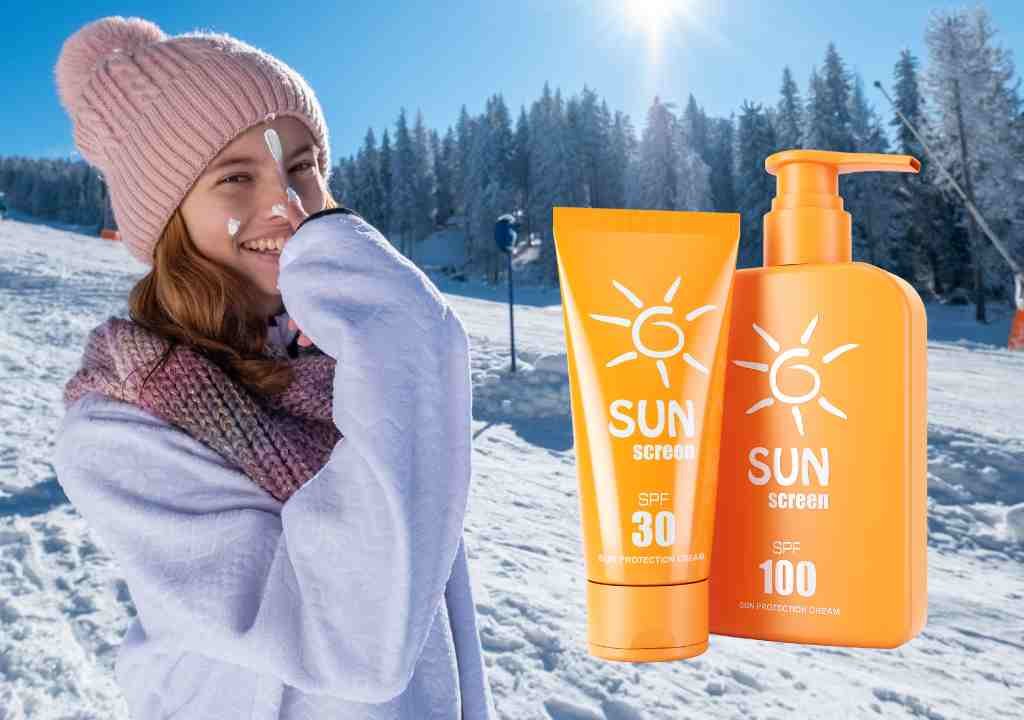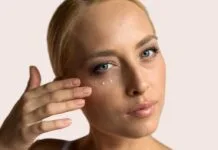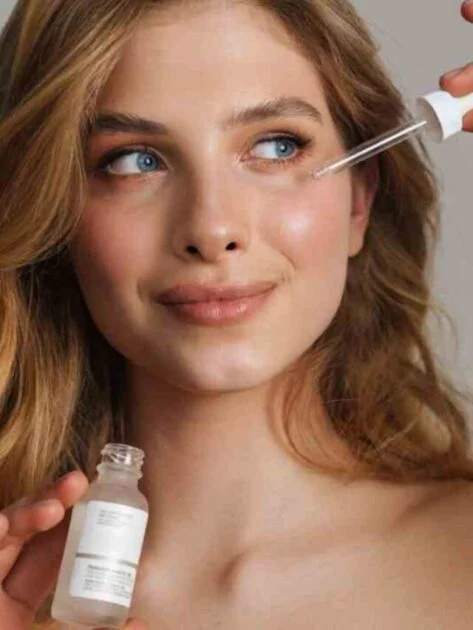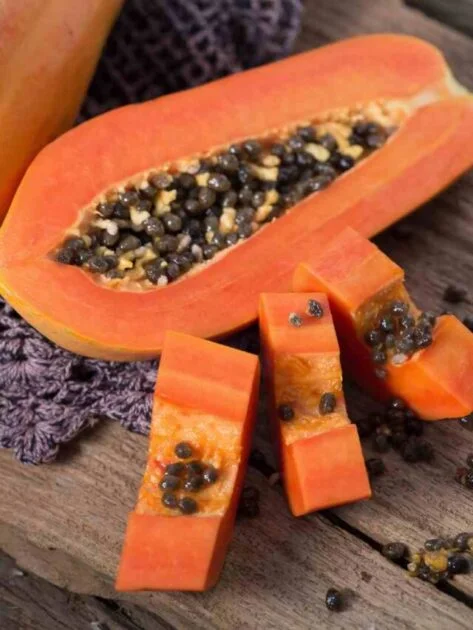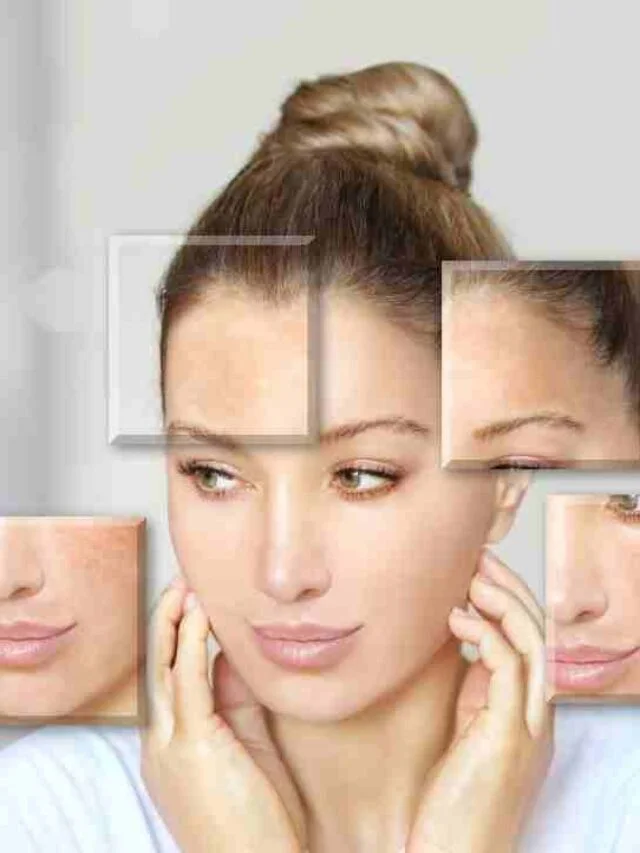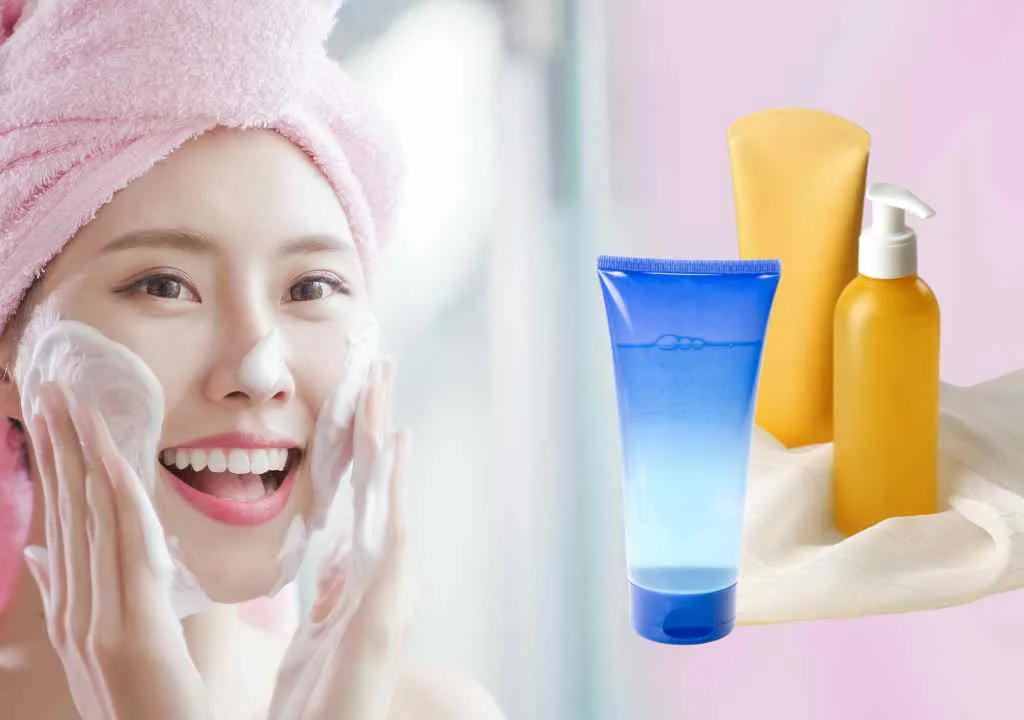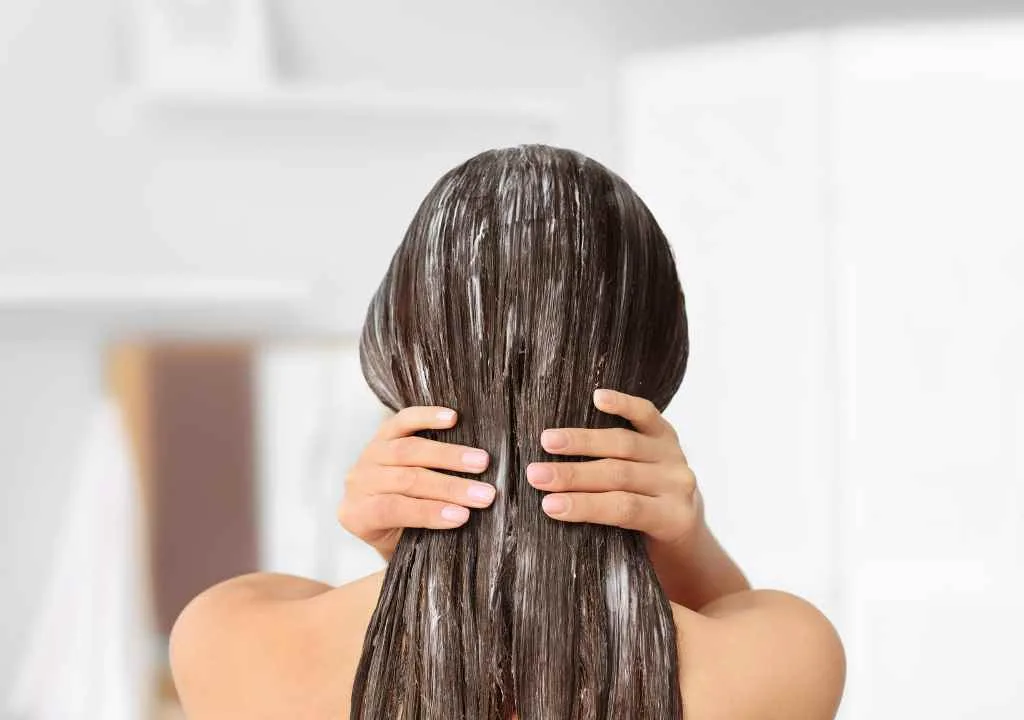When we think of sunscreen, our minds often conjure images of sun-soaked beaches, poolside lounging, and summer vacations. But here’s the truth: sunscreen is a year-round necessity, even during the chilly winter season. In fact, it’s the most crucial step in any successful skincare routine, regardless of the season. Whether you’re facing snow, wind, or low temperatures, these sunscreens will help keep your skin healthy, radiant, and shielded from sun damage. So, let’s dive in and discover the best sunscreens for winter to maintain your skin’s well-being all winter long.
Why You Need Sunscreen in Winter
Table of Contents
Sun damage isn’t limited to sunny days or high-exposure environments. UV rays can harm our skin even on cloudy, rainy days or when we’re indoors near a window. The damage may not always be immediately noticeable, but it accumulates over time. Skipping sunscreen could lead to long-term consequences like wrinkles and, worse, skin cancer.
So, let’s debunk the myth that sunscreen is only for summer. Here’s why you need it year-round:
- Protection from UV Rays: Sunscreen shields your skin from harmful UV rays, preventing premature aging and sunburn.
- Collagen and Elasticity Preservation: It helps maintain your skin’s elasticity and collagen levels.
- Hyperpigmentation: Sunscreen assists in fading dark spots and hyperpigmentation.
- Healthy Moisture Barrier: It contributes to a healthier skin barrier.
What is the difference between UVA and UVB
There are primarily two types of harmful rays that can damage our skin: ultraviolet A (UVA) and ultraviolet B (UVB). These rays can penetrate the atmosphere and reach the Earth’s surface, leading to various skin concerns and health issues. It’s essential to protect your skin from both UVA and UVB rays to minimize the risk of sun damage, premature aging, and skin cancer.
UVA Rays have longer wavelengths and penetrate deeper into the skin. They cause indirect damage to DNA, leading to premature aging, wrinkles, and an increased risk of skin cancers. Unlike UVB rays, UVA rays are not absorbed by the ozone layer, making them prevalent even on cloudy days. Immediate effects include tanning, and they are commonly used in tanning beds.
UVB Rays, with shorter wavelengths, directly damage the outermost skin layers. They cause sunburn, blistering, redness, and play a significant role in skin cancer development. Some UVB rays are partially absorbed by the ozone layer, but they still reach the Earth’s surface.
Both types of UV rays require protection. Choose a broad-spectrum sunscreen to shield your skin from both UVA and UVB damage, regardless of the season
Tailoring Your Sunscreen for Winter
During winter, skin tends to be drier and more prone to irritation. Therefore, opting for hydrating and moisturizing sunscreens becomes imperative. Unlike the summer months where lightweight, mattifying formulas may suffice, winter calls for richer, multi-functional products. Look for sunscreens that double as moisturizers, streamlining your skincare routine without compromising protection.
Moreover, prioritize sunscreens enriched with additional skincare benefits. Ingredients like collagen, peptides, and antioxidants can provide much-needed nourishment and protection against environmental stressors, common during winter.
How to Choose the Best Winter Sunscreen
Now that we’ve established the importance of winter sunscreen, let’s dive into the specifics. What should you look for in a winter sunscreen?
- Broad-Spectrum Protection: Opt for a sunscreen that provides both UVA and UVB protection. Look for the words “broad-spectrum” on the label.
- SPF 30 or Higher: Aim for an SPF of 30 or higher. This ensures effective defense against UV rays.
- Hydration: Winter air tends to be dry, so choose a sunscreen that also hydrates your skin. Look for ingredients like hyaluronic acid or glycerin.
- Non-Greasy Formulas: Heavy, greasy sunscreens can feel uncomfortable under winter layers. Seek lightweight, non-comedogenic options.
Extended Protection for Winter Comfort
In winter, the idea of frequent sunscreen reapplication may seem daunting. However, newer generation filters offer extended protection, reducing the need for constant reapplies. Unlike older formulations requiring reapplication every two hours, modern sunscreens can last up to six to eight hours, ideal for busy winter schedules.
Top Picks for Best Sunscreens For Winter
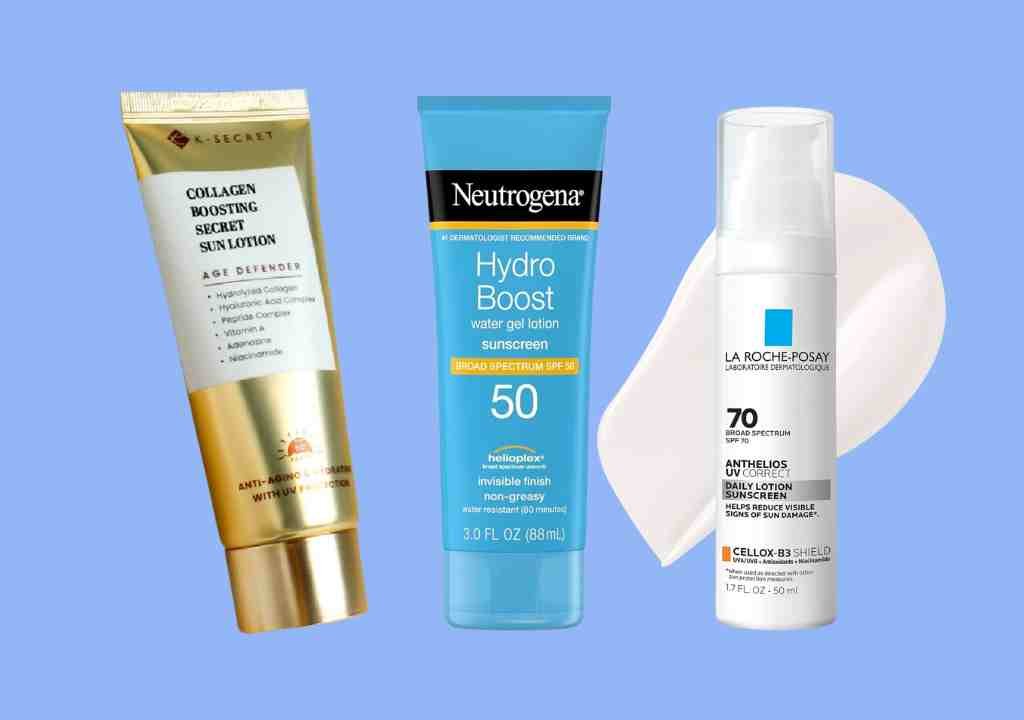
Now, let’s explore some standout winter sunscreens:
Neutrogena Hydro Boost Water Gel Lotion SPF 50
The Neutrogena Hydro Boost Water Gel Lotion SPF 50 is a skincare gem that seamlessly combines hydration and sun protection. With an SPF of 50, it shields your skin from harmful UV rays while keeping it plump and moisturized. The lightweight, non-greasy formula makes it perfect for layering under makeup or other skincare products. Whether you’re strolling through winter streets or enjoying a snowy adventure, let this sunscreen be your trusty companion.
La Roche-Posay Anthelios UV Correct SPF 70
The La Roche-Posay Anthelios UV Correct SPF 70 is a winner. With an impressive SPF 70, it shields your skin from harmful UVB rays, prevents sunburn, and offers broad-spectrum defense against both UVA and UVB rays. The subtle tint evens out your skin tone, while the lightweight, non-greasy formula blurs imperfections. Whether you’re heading to the beach or just stepping out for errands, this sunscreen has your back. Protect your skin, embrace the tint, and revel in that non-greasy glow.
K Secret Collagen Boosting Sun Lotion:
This Korean Sunscreen Lotion boasts new-generation filters and a hydrating formula, ideal for combating winter dryness. With collagen and peptides, it offers unparalleled hydration and skincare benefits, ensuring all-day comfort and protection.
You May Also Like to read: Dewy or Matte? Find Your Perfect Korean Sunscreen for Combination Skin
Numbuzin Pure Full Calming Water Sunscreen:
Designed for oily and acne-prone skin, this gel-like sunscreen provides lightweight yet effective protection. With added calming ingredients, Numbuzin Sunscreen helps soothes irritation while safeguarding against UV damage.
Dr. Sheth’s Centella & Niacinamide Sunscreen SPF 50 Pa+++
The Dr. Sheth’s Centella & Niacinamide Sunscreen is a game-changer for oily and acne-prone skin. This water-resistant, silicone gel-based sunscreen offers ultra-matte perfection, leaving a velvety dry finish. The star ingredients—1% Niacinamide for oil control and Centella Asiatica Extract for soothing irritated skin—make it a powerhouse. Plus, it’s paraben-free, vegan, and non-toxic. Say hello to sun protection without compromising on skin health!
Embrace Winter Sun Protection
In conclusion, prioritizing sunscreen in winter is non-negotiable for maintaining healthy, radiant skin. While summer formulations may suffice during warmer months, adapting to the unique needs of winter skin is essential. Whether you opt for hydrating Korean formulas or US-friendly alternatives, ensuring broad-spectrum protection is paramount. Embrace winter sun protection to safeguard your skin’s health and beauty year-round or you may chose one of our suggested best sunscreens for winter.
Remember, regardless of your location, prioritizing sunscreen in your skincare routine is a universal necessity. Let’s protect our skin and embrace the beauty of every season.

